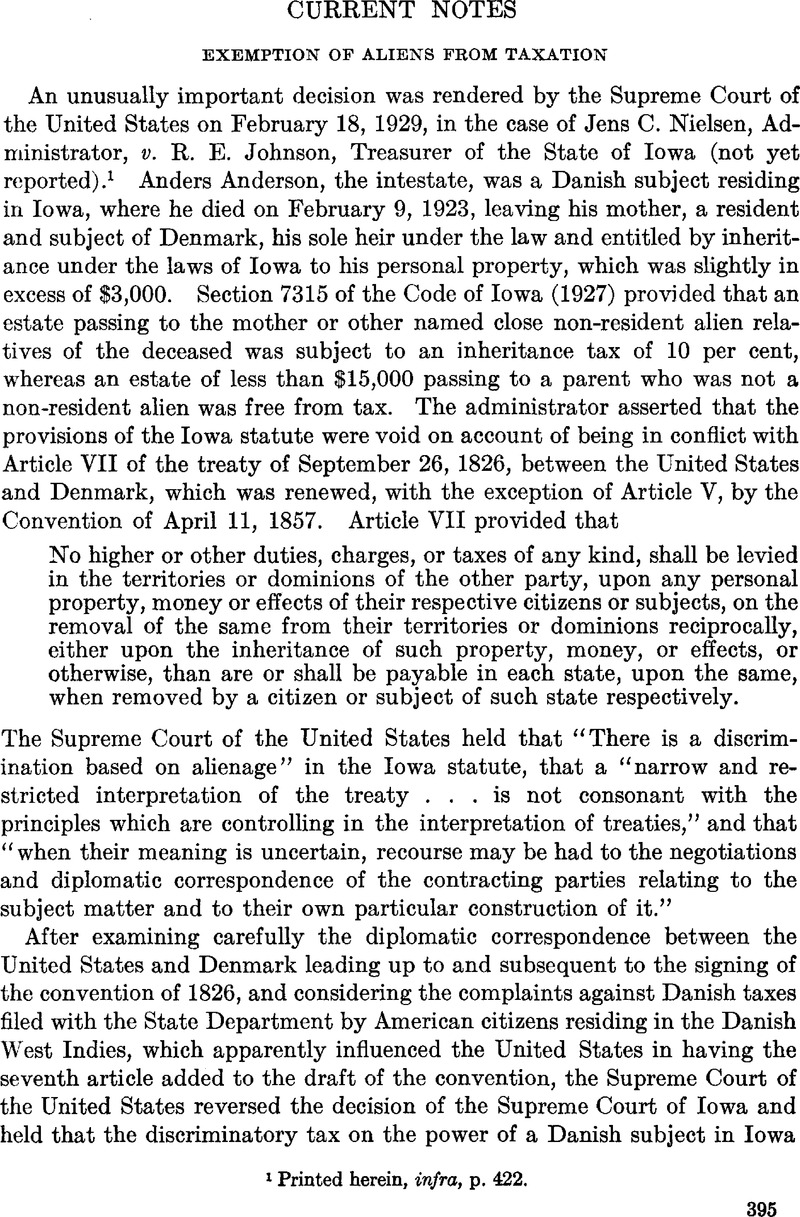No CrossRef data available.
Published online by Cambridge University Press: 04 May 2017

1 Printed herein, infra, p. 422.
2 As originally enacted the United States income tax statutes did not give credit for the amount of taxes paid to foreign governments. The present law, however, allows such credit. (Section 131 (a) (1) Revenue Act of 1928, Session Laws, Seventieth Congress, 1st Session, Part I, page 829, reads as follows:
“(a) Allowance of credit.—The tax imposed by this title shall be credited with:
“(1) Citizen and Domestic Corporation. In the case of a citizen of the United States and of a domestic corporation, the amount of any income, war-profits, and excessprofits taxes paid or accrued during the taxable year to any foreign country or to any possession of the United States.”
3 Clunet, Journal du droit international, Vol. 50 (1923), pp. 217–243.
4 See Ex. Doc. C, 64th Cong. 1st sess., and resolution passed by the Senate of the United States on Aug. 29, 1916, Congressional Record, Vol. 53, Pt. 13, p. 13348.
5 Sec. 1323 of Chap. 95 of the Revised Laws of Hawaii.
6 See resolution passed by the Senate of the United States on March 7,1921, Congressional Record, Vol. 61, Pt. 1, pp. 13–16, and Ex. Q, 66th Cong. 2d sess.
7 Printed in Supplement to this Journal, Vol. 20, p. 4.